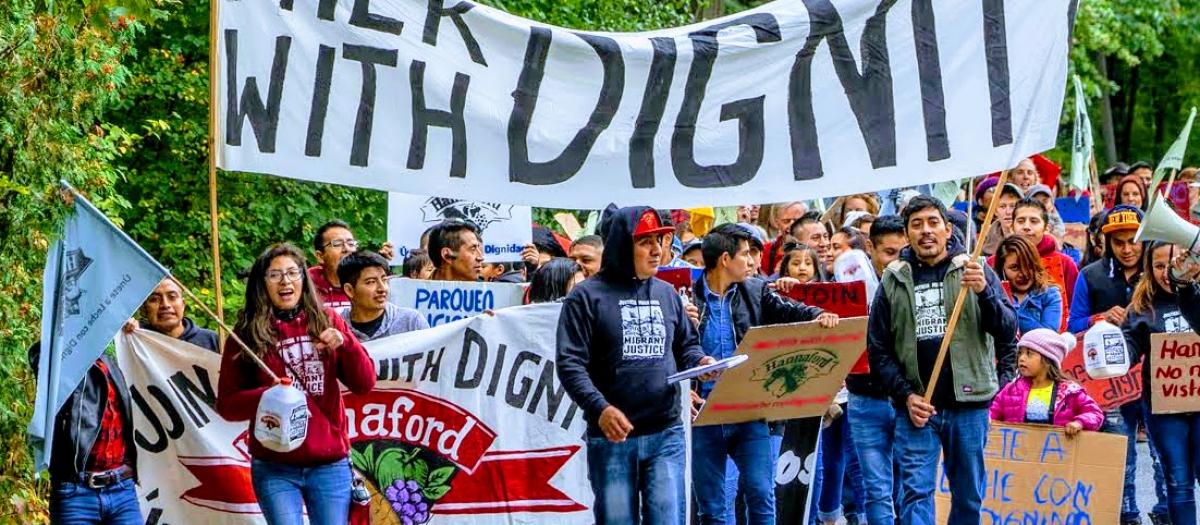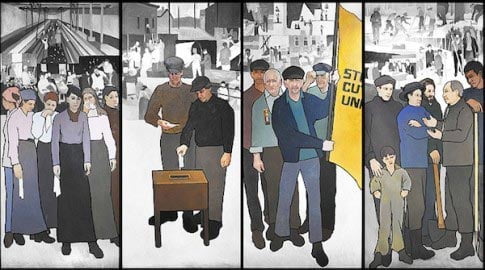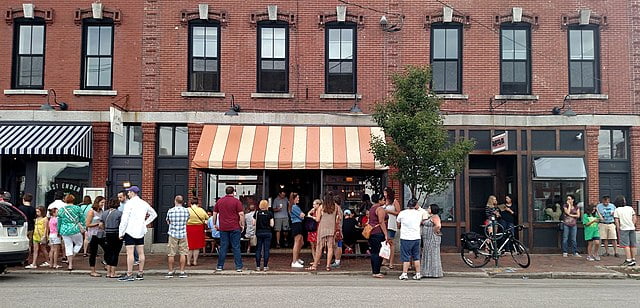This opinion piece is part of an ongoing debate in Maine DSA about candidates in 2026. Pine and Roses welcomes contributions.
Recent events in the race of Graham Platner for Senate have rustled up much debate among centrists, progressives, and leftists in Maine. And for good reason, it was brought to light that the candidate had posted some cringey stuff online in the early and mid oughts, and got a skull and crossbones tattoo in 2007 while in the Marines which turned out to be a symbol used by Nazis in the past (he claims he was unaware of its meaning until recently, and has gotten it covered up). This has forced many of his supporters and those considering support to take a hard look in the mirror. Are we able to forgive these past wrongs and bad decisions, and see the man for what he represents now, or do those past deeds automatically disqualify him as an acceptable leftist candidate?
Questioning candidates’ motives isn’t new for the left. It has become necessary for many to be skeptical of politicians running on progressive platforms. Notably, these candidates often do one of two things: sell out to monied or centrist interests in order to get elected, or they lose. As a result, some leftists give up on electoral politics, others batten down the hatches and become purity testers, forgiving no blemish they consider a step too far.
By no means is skepticism an incomprehensible stance, given the socialist left’s history dealing with both centrist and right-wing capitalists who seemingly win every time despite broad growing discontent. But, with the explosive advent of the internet and social media, with its long memory of posts and pictures kept in archives; coupled with the immediate need for radical change, it is time to consider a careful strategy of revolutionary forgiveness when regarding not only leftist candidates, but also each other.
Revolutionary forgiveness is a tricky thing. It requires an understanding of time, context, human fallibility, coupled with a deep belief in the ability for one to change, and most of all in hope. These are things any leftist ought to understand and believe in. This isn’t to argue for some naive sense of forgiveness. We all must weigh the wrongs done by others and ourselves with varying degrees and consider it in light of the promise they show to improve and make amends moving forward. Forgiveness does not mean forgetting past wrongs, but forgiveness paired with remembering breeds a stronger sense of accountability.
For a while now, the left has been very sensitive to activists’ and candidates’ pasts, and an expectation of purity has grown within many leftist circles over the last two generations. Partly, this is due to the broad coalition of different peoples the left rightly works to include. To keep that coalition together, it surely necessitates some sense of honest accountability. But, at what point is it taken so far that it goes from accountability to hatred and abandonment, especially when it’s about someone’s former words or deeds that they’ve come to regret, apologize for, and shown that they’ve grown beyond? At what point is it cutting off the nose to spite the face?
One of the things a socialist vision is founded on is the radical belief that people can change. That’s why we meet people where they are and hold honest conversations. It’s why we work tirelessly to engage with all people and hold public meetings. It’s why we believe in restorative justice and hold out hope that a better world is possible. We understand the demands and pressures life sometimes put on us. We understand why some folks may disagree with some of our ideas, but we don’t stop trying. We know that today’s skeptic or opponent might become tomorrow’s supporter. And, if or when they do come around earnestly, who are we to then look down at them and judge them for bad decisions or ideas they held 10 or 20 years ago? We move forward, together.
This question becomes more important as younger generations, raised up under the panopticon of the internet and social media, grow older, mature in their views, and some start running for political office or leadership in community organizations. Their teens and early 20’s, spent figuring things out, making mistakes, and trying to find their place, are captured and archived online for people fifteen or twenty years later to throw back in their face.
This phenomenon will continue to compound for the left, as that same online landscape is now being used by the conservative right to its advantage. Conservative influencers and communities are willing to accept confused youths and people who’ve made mistakes into their social media circles, and encourage them to solidify and amplify these hateful views. Meanwhile, many online leftist circles are defined, accurately or not, as judgemental spaces where people call each other out for having problematic pasts or misdeeds and perceived imperfections, sometimes ostracizing them completely. If you were a confused teenager or college student looking for an online community, which sounds more attractive to you?
If the left hopes to advance in our current “very online” culture, it needs to develop a radical sense of revolutionary forgiveness. This goes back to Graham Platner’s run for Senate. Here is a candidate who sincerely espouses a left-populist vision that puts working people above billionaires, supports our LGBTQ siblings, and puts healthcare reform at the top of his agenda. He is also a fallible person who said some disgusting things online in the past and got a hateful tattoo when he was 22 in the Marines. Is the left able to see him for who he is now and what he represents, exercising a sense of revolutionary forgiveness, or will it be doomed to continue its path of purity testing and ostracize someone who may show promise, but stepped over the line a few times as a young, confused man? Only time will tell, but I hope for the sake of Maine and working people, we find a way to forgive this time.




